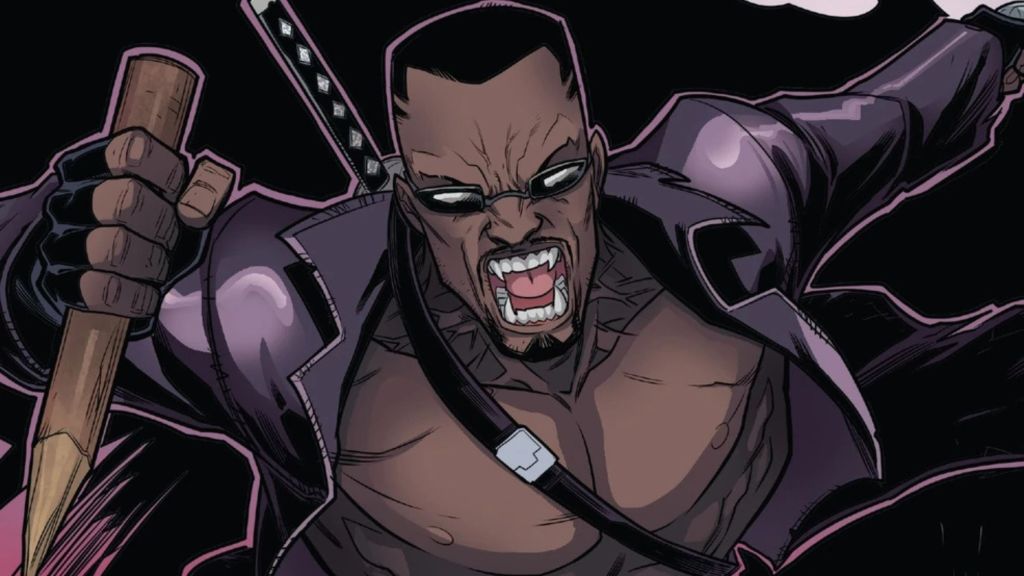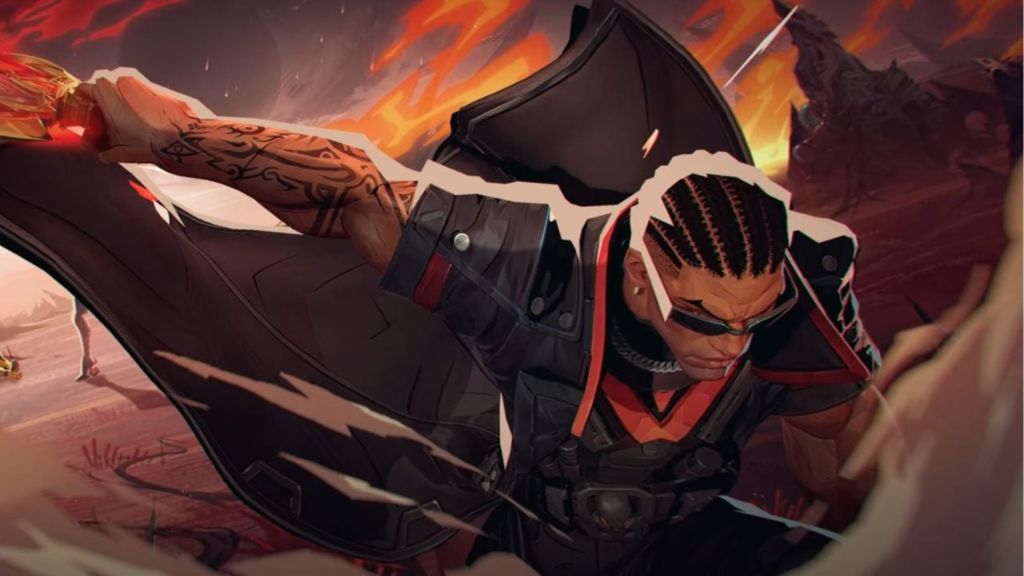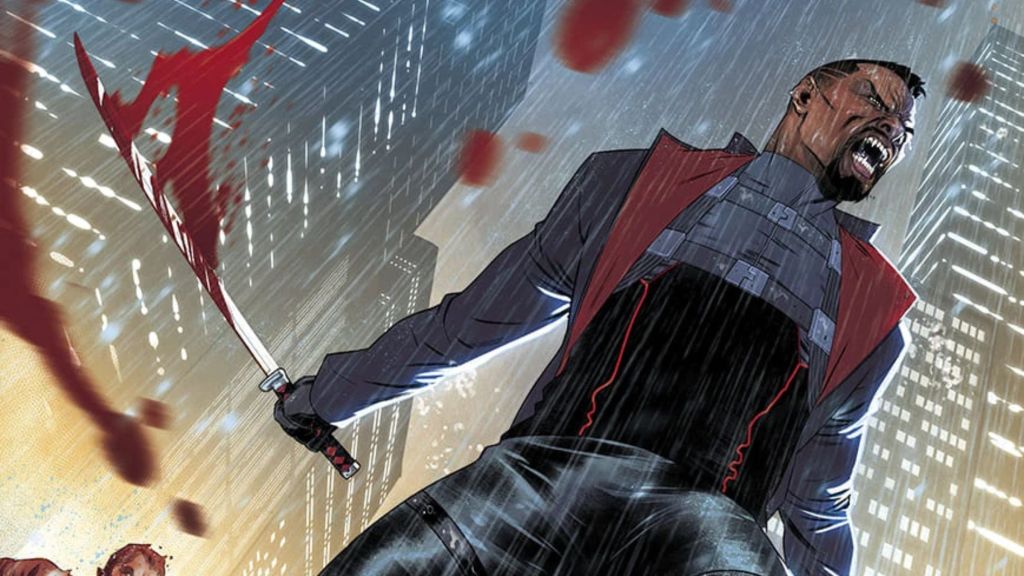In the years since Avengers: Endgame brought the Infinity Saga to a close, the Marvel Cinematic Universe has struggled to recapture its narrative momentum. Fans have grown increasingly vocal about a variety of issues plaguing the franchise, from major characters disappearing for years at a time to significant plotlines being introduced only to be abandoned, damaging the once-unbreakable sense of a cohesive interconnected world. This feeling of disconnect has been compounded by a relentless stream of content on Disney+, leading to widespread complaints of oversaturation. Amidst this uncertainty, numerous projects have been stuck in limbo, such as the Blade film reboot.
Videos by ComicBook.com
Announced to massive excitement in 2019 with Oscar-winner Mahershala Ali attached, Blade has since become a case study in development hell, cycling through multiple writers and directors before being removed from the release schedule entirely. However, the initial handling of the character only makes the subsequent fumble more frustrating. Blade officially debuted in the MCU as a disembodied voice in the post-credits scene of 2021’s Eternals. This brief cameo, in which he guided Dane Whitman (Kit Harington) to claim the Ebony Sword, was the perfect tease, immediately positioning the vampire hunter as a knowledgeable figure already operating in the shadows of the MCU.
At that moment, Marvel Studios had all the pieces in place for a Blade movie: an A-list star, a perfect introductory scene that sparked endless fan theories, and a clear path to follow up on that promise. Unfortunately, that tantalizing glimpse was the last real progress the character has seen on screen. What’s worse, a Blade movie could have avoided the current MCU pitfalls.
Blade Was the Perfect Antidote for a Disconnected Universe

Where the Infinity Saga was defined by its methodical build-up, recent MCU phases have felt disjointed, with universe-altering events from one project often ignored in the next. If released promptly, Blade would have provided the perfect antidote to this narrative drift. For starters, it would have represented a direct continuation of the Eternals post-credits scene, demonstrating to audiences that the studio still valued serialized storytelling. More importantly, Blade was perfectly positioned to be the nexus for the MCU’s burgeoning mystical corner.
The years following Blade’s vocal cameo saw the introduction of a host of supernatural characters and concepts, but they have remained largely isolated. The Disney+ special Werewolf by Night was a stylistic triumph that introduced monsters and monster hunters. The series Agatha All Along delves deep into the world of witchcraft. Meanwhile, films like Doctor Strange in the Multiverse of Madness and the series Ironheart have embraced horror elements and introduced demonic forces such as Mephisto (Sacha Baron Cohen). Yet these threads remain separate. A movie centered on Marvel’s premier vampire hunter could have tied the worlds of sorcerers, monsters, and dark magic together, creating a coherent sub-franchise instead of a collection of disconnected experiments. This supernatural arc could have run parallel to the multiverse storyline, helping fans to understand what was really at stake in the many disconnected Phase 4 and Phase 5 projects.

In addition, a healthy multimedia franchise thrives when its different branches work in concert. In 2024, Marvel Comics launched “Blood Hunt,” a massive crossover event centered on a global vampire uprising with Blade playing a pivotal role. Likewise, Blade is a popular character in the new team-based shooter game Marvel Rivals, which exposed him to a huge gaming audience. Without a cinematic anchor to capitalize on this heightened visibility across comics and gaming, the synergy was squandered, representing a fundamental misunderstanding of modern franchise management.
Marvel Ignored a Low-Risk, High-Reward Genre Opportunity

A swift move into the supernatural would have also been a smart financial pivot, especially given the MCU’s recent box office performance. The prevailing model of massive budgets has become increasingly unsustainable, as evidenced by the high-profile financial disappointments of films like The Marvels and Captain America: Brave New World. Even The Thunderbolts* and Fantastic Four: First Steps, which earned good reviews, had disappointing financial returns. That’s not surprising, as with production and marketing costs for a standard MCU tentpole soaring, the break-even point often sits in the daunting $600−$700 million range. This approach sets an impossibly high bar for profitability, turning respectable theatrical runs into perceived failures and putting immense pressure on every single release to be a global phenomenon.
Blade, grounded in action and horror, offered a clear creative alternative. Horror is traditionally a genre that thrives on atmosphere, tension, and practical effects rather than the world-ending CGI set pieces that have become the MCU’s default. So, a film focused on street-level vampire hunting would have provided a much-needed stylistic refresh to the MCU, while only costing a fraction of your average superhero outing. The new DC Universe under James Gunn and Peter Safran has aggressively embraced a more varied budgetary strategy, perfectly exemplified by their planned Clayface film. Developed as a horror-centric story with a reported budget of around $40 million, Clayface represents a low-risk, high-reward model that Marvel Studios could have used four years ago.
Since Time Heists can’t change the past, we are stuck in a timeline where Blade was never made. Sadly, the more we think about it, the clearer it becomes how this movie might be Marvel Studios’ biggest missed opportunity.
Would Blade have saved the MCU’s momentum, or was the project doomed no matter what? Join the discussion in the comments!









